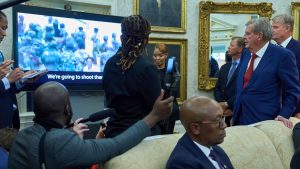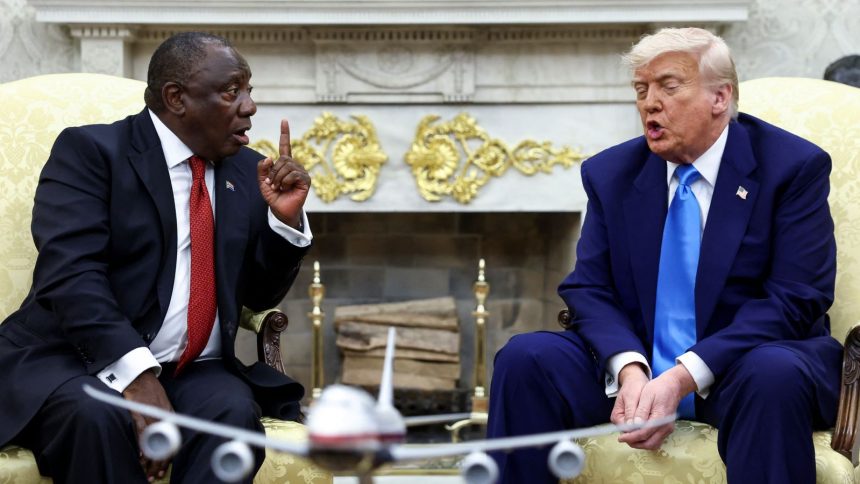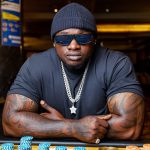The U.S. President Donald Trump stunned South African President Cyril Ramaphosa during a high-stakes White House meeting by presenting a controversial video alleging a “genocide” of white farmers in South Africa.
What began as a friendly Oval Office encounter—marked by Trump praising South African golfers present—quickly turned confrontational.
Without warning, the room darkened and a video montage began to play, purportedly showing mass graves of white South African farmers and inflammatory political rhetoric, including footage of controversial South African politician Julius Malema singing a struggle-era song with violent lyrics.
“It’s a terrible sight… I’ve never seen anything like it. Those people are all killed,” Trump declared.
President Ramaphosa remained composed but visibly uneasy during the screening. Responding afterwards, he questioned the video’s authenticity: “I’d like to know where that is, because this I’ve never seen.”
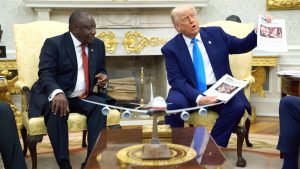
Trump accused South Africa of ignoring violence against its white minority, stating, “People are fleeing South Africa for their own safety. Their land is being confiscated, and in many cases, they are being killed.”
The confrontation echoed Trump’s earlier Oval Office encounter with Ukraine’s President Volodymyr Zelenskyy, in which he similarly presented surprise claims using video “evidence.”
Despite the tense exchange, Ramaphosa later told reporters the three-hour meeting went “very well.”
At a press briefing, he strongly refuted the accusations: “There is just no genocide in South Africa. Our government policy is completely, completely against what was said in that video. Those individuals represent a small minority party.”
Nevertheless, the Trump administration posted the video on its official X (formerly Twitter) account, calling it “proof of persecution in South Africa.” Trump also shared printed media reports claiming to show white farmers who had been killed, flipping through the pages while repeating, “Death, death.”
When Ramaphosa attempted to clarify that the majority of crime victims in South Africa are black, Trump interrupted: “The farmers are not black.” Ramaphosa responded diplomatically: “These are concerns we are willing to talk to you about.”
The Oval Office meeting took place amid increasing tensions between the U.S. and South Africa. In the preceding five months, Trump’s administration had:
Cut key humanitarian aid, including the HIV-focused PEPFAR program (where South Africa is the largest beneficiary), Expelled South Africa’s ambassador, and Extended refugee protections to white South Africans on grounds of alleged racial persecution—claims Pretoria has dismissed as misleading and racially inflammatory.
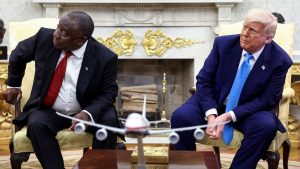
Trump also issued an executive order in February halting all U.S. funding to South Africa over disagreements with the country’s domestic and foreign policy positions.
While Ramaphosa expressed willingness to maintain diplomatic dialogue, the clash underscored a widening rift.
As U.S.–South Africa relations sour, Pretoria stands to lose critical support at a time of growing regional and global complexity.
